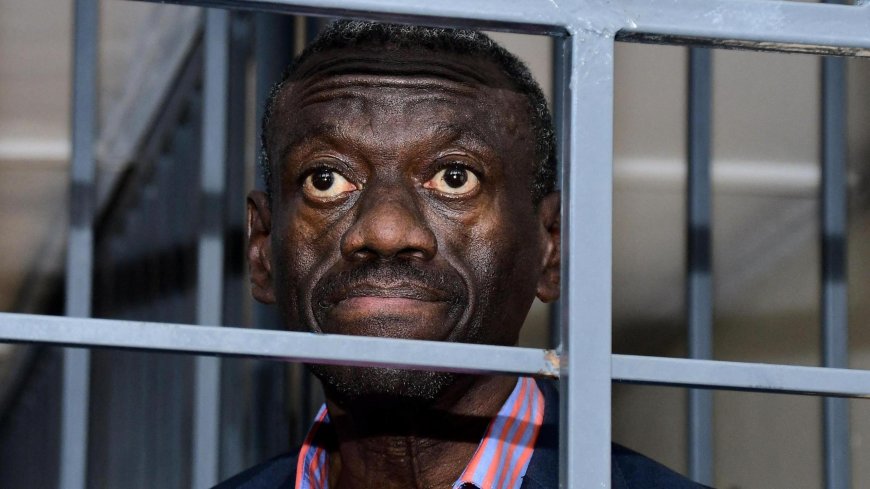Ugandan Court Denies Bail to Besigye After Nine Months in Detention, Raising Democracy Concerns
On August 8, 2025, Ugandan court denied bail to veteran opposition leader Kizza Besigye, who had been detained nearly nine months on treason charges, raising democracy concerns ahead of 2026 election.

In a move that has intensified scrutiny of Uganda’s political climate, a Kampala High Court judge denied bail to veteran opposition figure Kizza Besigye, who has been detained for nearly nine months on treason-related charges. The refusal, rendered on Friday, August 8, 2025, deepens fears about the weakening of democratic norms ahead of next year’s presidential election.
The Court’s Ruling: Legal Reasoning and Context
Judge Emmanuel Baguma dismissed arguments asserting that Besigye was entitled to automatic bail after spending over 180 days in custody without trial—a provision enshrined in Uganda’s constitution. Baguma clarified that the countdown for mandatory bail began only when Besigye was transferred to a civilian court on February 21, following his initial prosecution in a military tribunal. At that point, Besigye had served nearly 208 days in detention, leaving him 12 days short of eligibility for release.([turn0news11], [turn0search3])
Despite his advanced age and deteriorating health—his lawyers have flagged concerns about hypertension and lack of specialized medical care—the court concluded that the gravity of treason and national security charges justified continued detention.([turn0news20], [turn0search3])
Who Is Kizza Besigye: The Opposition Icon
Colonel (retired) Dr. Kizza Besigye has been a cornerstone of Uganda’s opposition politics for decades. A former personal physician and military ally of President Museveni, Besigye has run for president four times and founded the Forum for Democratic Change (FDC). His repeated incarcerations and confrontations with authorities have made him a symbol of resistance against what critics say is an increasingly authoritarian administration.([turn0search21], [turn0news17])
Earlier this year, despite being imprisoned, Besigye launched a new political movement—the People’s Front for Freedom—signaling his resolve to remain politically relevant even from behind bars.([turn0news17])
Political Fallout and Human Rights Alarm
The denial of bail has provoked strong reactions from opposition figures and rights groups. Bobi Wine, another prominent opposition leader, condemned the ruling, calling it part of a broader effort to silence dissent ahead of the 2026 elections. Human rights organizations have labeled the continued detention—especially amid health concerns—as deeply troubling.
The Commonwealth, during earlier phases of the detention, had urged Besigye’s release, warning that prolonged detention without trial threatens democratic credibility.([turn0news22])
A Judicial Crossroads: Military vs. Civilian Courts
Much of Besigye’s legal saga stems from the controversial use of military courts to try civilians—a practice the Ugandan Supreme Court declared unconstitutional in January 2025. Yet, despite the ruling, the government initially retained jurisdiction in military courts, forcing legal and political challenges.
When Besigye launched a hunger strike in early 2025, citing medical neglect and procedural injustice, court decisions eventually shifted his case to a civilian forum—but the underlying hesitation to grant bail persists.([turn0search24], [turn0news20], [turn0news17])
Implications for Uganda’s 2026 Election
President Yoweri Museveni, now 80, has confirmed his bid for a seventh term in 2026. With Besigye sidelined, questions grow over the fairness of upcoming electoral contests. Critics argue that detained opposition leaders and repressive legal tactics undermine any semblance of democratic competition.
Observers warn that if the status quo continues—marked by delayed trials, stringent detentions, and restricted political activism—Uganda risks progressing toward entrenched authoritarianism.([turn0news19], [turn0news17])
What Lies Ahead for Besigye and the Political Landscape?
With bail denied and the trial yet to commence, Besigye remains incarcerated at Luzira Maximum Security Prison. His condition continues to be a point of concern, with his legal team emphasizing the need for adequate medical support.
The case is now expected to proceed in civilian courts, but political observers anticipate mounting pressure—both domestically and internationally—to secure fair treatment and eventually, a medical release.











